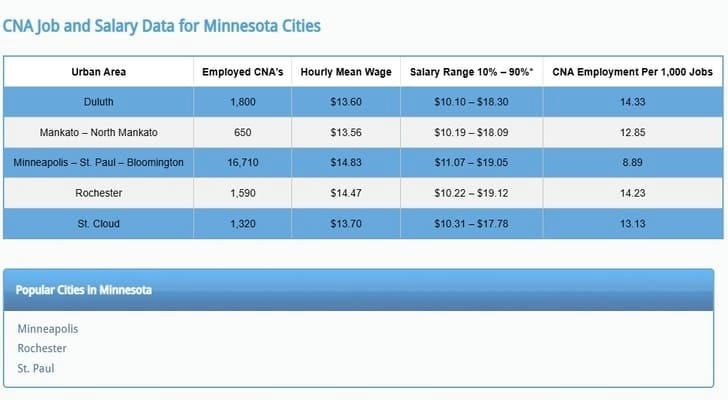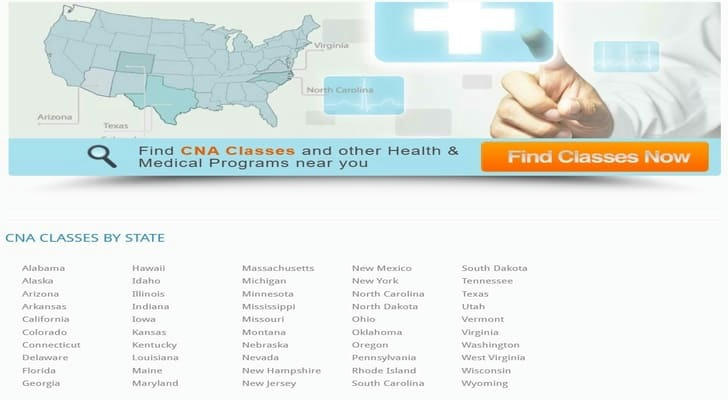CNA Online Courses and Clinical Training Opportunities
Clinical training is a vital component of CNA courses, providing essential hands-on experience that complements online learning and prepares students for real-world healthcare environments. In this article, we’ll guide you through the process of finding local clinical training opportunities for CNA programs, helping you navigate your options and secure the practical experience needed to meet certification requirements and launch your career.

Current Demand for CNA Talents
The CNA course offers individuals an opportunity to enter the healthcare field with relatively short training periods (typically 4-12 weeks) and strong job prospects. The demand for CNA talents is expected to remain robust, driven by factors like an aging population, healthcare workforce shortages, and ongoing healthcare needs.
1.Aging Population:
CNAs play a crucial role in providing personal care to elderly patients in nursing homes, assisted living facilities, and home healthcare settings.
2.Job Security and Stability:
The CNA role is considered one of the more stable healthcare positions. With growing demand, job security is high, and there are often opportunities for advancement into other healthcare roles, such as licensed practical nurse (LPN) or registered nurse (RN), for those seeking career growth.
3.Job Market Trends:
National Demand: According to the U.S. Bureau of Labor Statistics (BLS), the employment of CNAs is expected to grow by 8% from 2020 to 2030, which is faster than the average for all occupations.
CNA Course Content
1. Online Courses
① Basic Patient Care: Learning how to help patients with daily activities like bathing, dressing, and feeding.
② Vital Signs: Teaching how to measure and record vital signs like blood pressure, temperature, and pulse.
③ Infection Control: Understanding how to prevent the spread of infections and maintain cleanliness.
④ Medical Terminology: Learning basic medical terms to communicate with healthcare professionals.
⑤ Emergency Procedures: Basic first aid and CPR training, if included.
⑥ State Requirements: Information on state-specific rules and preparing for the CNA certification exam.
Most of the coursework is online, but students still need to complete hands-on clinical training in a healthcare facility to gain practical experience.
2. Clinical Practice (Hands-On Training)
① Supervised Patient Care: Students gain real-world experience by providing care in a healthcare setting (such as a hospital, nursing home, or clinic) under the supervision of licensed nurses or instructors.
② Skill Application: Applying learned skills such as taking vital signs, assisting with daily living activities, and assisting patients in moving or getting in and out of bed.
③ Patient Interaction: Direct interaction with patients allows students to practice communication and understand the dynamics of caregiving.
④ Working with Healthcare Teams: Students work alongside registered nurses (RNs), doctors, and other healthcare staff to get an understanding of the healthcare environment and learn how to collaborate in patient care.

CNA Online Course Application Methods
- Directly Through Colleges or Universities
Many community colleges, technical schools, and universities offer CNA training programs.
• University of California, Los Angeles (UCLA) Extension
• University of Washington: The University of Washington offers CNA programs designed to help students gain essential skills through both classroom instruction and clinical training, often in partnership with local healthcare institutions.
• Arizona State University (ASU)
- Online Educational Platforms or Training Centers
① Penn Foster ② American Red Cross ③ Bridgeport Hospital ④ Nursing Assistant Program by Southern Careers Institute
- State-Approved CNA Programs
In many states, the local State Department of Health or Board of Nursing may have approved CNA programs listed on their website.
CNA course information collection for each state

Clinical internship opportunities
- St. John’s United
provides an accredited nursing assistant training program for individual who are interested in pursuing a career in healthcare. This training as a pathway to employment at St. John’s United. Program content and scholarship:
• Three weeks of online instruction
• 36 hours of on-site clinical training
• Take the Montana certification exam
• Scholarship: Nursing Apprentice Fellowship program
- Concorde Career Colleges
Offers a Certified Nursing Assistant (CNA) program designed to provide students with the basic skills needed to become a CNA.You can choose to work in hospitals, clinics, or private practices. You will administer medicines and treatments, set up patient plans, consult and collaborate with doctors and health care professionals, and help explain treatments to patients and their families.
Benefits of studying this course (Minnesota example)
The average starting salary for a Certified Nursing Assistant (CNA) is $40,000, plus a comprehensive benefits package. (Data source: Glassdoor.com)
Flexible working schedules and flex hours
The ability to work as a certified nursing assistant in any number of facilities across the state
The ability to apply to another state and become licensed there without having to take another CNA training program.
For more information, please see: CNA Online Courses & Clinical Training
